#did journal
Text
Random list of things for systems to add to a journal:
Especially if y’all struggle with any variation of amnesia
Positive relationships; people who are your friends, will help confused alters/parts, how to contact them, history with them, what they look like, etc.
Negative relationships; people to avoid if they try to reach out, what they did, why it’s bad, who specifically they hurt, etc.
Body information; birthday, school history, height, eye color, things that may need to be known to mask during conversations.
What certain alters/parts need or are trying to work on; ex. “XX is trying to keep their money plant alive,” “make sure ZZ’s cup is clean.” Elaborate on it and why it’s important to them.
Daily/Weekly/Monthly chores; pretty self explanatory. For monthly chores it’s good to keep a date log/reminder to gauge when it needs done again.
Memories you’d like to share; positive memories are always a treat to read in our journal, but also things like “a new stray cat comes around for food, he’s the gray one. He’s sweet but don’t touch his butt.”
#//#system journal#system journaling#did journal#osdd journal#osdd community#did community#actually did#actually osdd#did osdd#/our post
643 notes
·
View notes
Text
Regarding the journal stuff, I see a tooonn of systems saying they’d love to journal, but they can never keep up with it or stick to it, etc etc. and I just wanted to say that like
You don’t have to do it everyday. Keeping a journal for us is just how we like to organize information & notes. And on average we write in it once a week
If you want to keep a daily journal, especially for systems that struggle with time recollection, amnesia, and similar stuff, I highly suggest the app Daylio
We have it set up so that even if we can’t write about our day, we can at least keep an entry to log the simple stuff. Here’s how we set it up;


We have an “activity group” for front, and actual activities. This is what our entries normally look like;
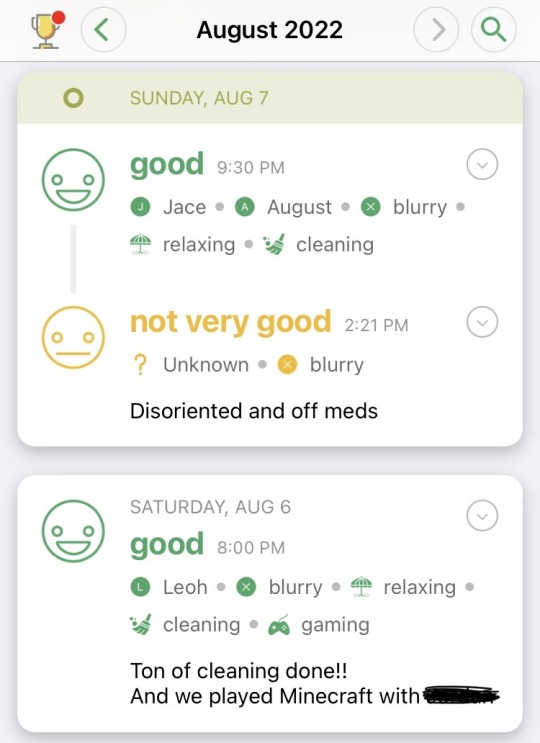
Sometimes headmates will write a lot more, and other times we just don’t have the energy. But it’s nice to at least be able to know what we were doing. Hope this helps someone!
#ugh this has been in drafts for so long#i can’t bring myself to try and edit it / whatever#okay post#//#system advice#did journal#system journal#osdd journal#did osdd#did advice#osdd advice#/info
61 notes
·
View notes
Text
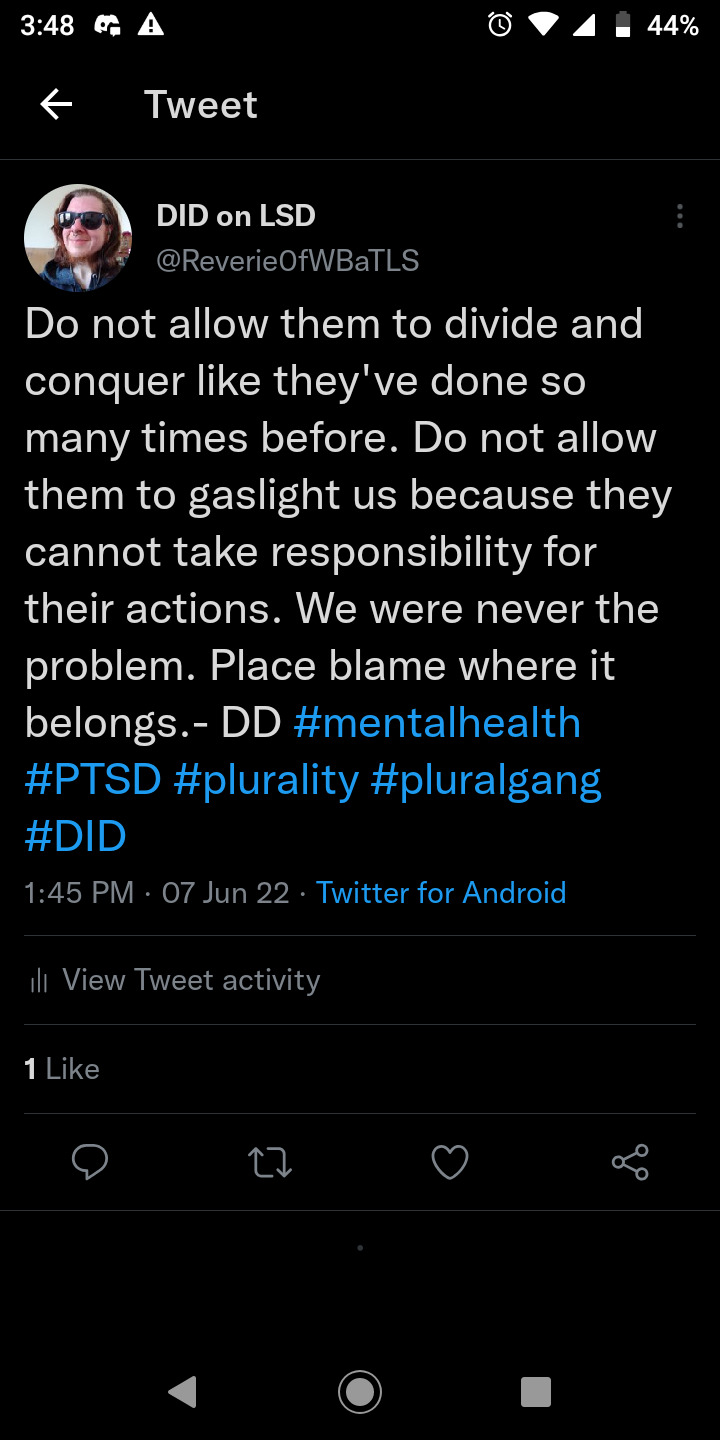
#mental health#<3#dissociative identity disorder#did#ptsd#post traumatic stress disorder#plural pride#Plurality#multiplicity#radical inclusion#radically inclusive#endogenic safe#pro endo#tulpa safe#6-7-22#Journal#did journal#Dissociative diary#Dante
23 notes
·
View notes
Text
i've been switching so much lately bc of my pain that the days are feeling extraordinarily long but short at the same time i am so disoriented
3 notes
·
View notes
Text
Etiquette and proper discourse
A friend of ours asked about proper etiquette regarding D.I.D. systems. I think this is a really good question. First off, I'd like to say that simply asking this question is a great indicator of respect for someone else's experience. I always try to do my best to understand where someone else is coming from, especially when reading about an experience I am not a part of.
I am still not entirely certain of the language of things when it comes to Dissociative Disorders. I actually find it quite overwhelming - especially when you start dividing things into Otherwise Specified or not-otherwise specified Disorders. (Not sure what that's referring to? Well, yeah, we struggle with it too). So that being said, the first thing I'm going to share is actually a couple other resources that has been helpful to me. As I read through these resources, there was something that stood out for me in particular. A lot of what someone with D.I.D. is comfortable with has to do with where they are at as a system. It also gets even more complicated when some parts are comfortable with certain etiquette and others are not. Yeah. It's kinda like when people say you can't please everyone. So true here. That can make things really difficult, not just for the person who identifies as a D.I.D. System, but also for the people who are trying really hard to be respectful and accepting of their status. So, I'll touch on that in regards to my current personal experience as well in this post.
First, here are the resources I mentioned:
More than One - Etiquette This is a great resource in general. It is succinct and not too complex. It has several different outside links to additional resources told from the perspective of other systems.
Rules of Engagement - Plural Etiquette : this is more of a resource that is specific to the system and system members writing it. But it still gives a good perspective of what boundaries their system has put in place for proper discourse, etiquette and interaction.
I suggest taking a good read through these two links.
So, now let's take it from our angle:

We've had the official diagnosis of D.I.D. for a little over a year ago (I think? Time is weird - maybe it was two years ago). We go to therapy twice a week. It's a lot of really hard and complicated work. Prior to our official diagnosis, we had a lot of wrong ones that were given to us. I guess maybe they aren't exactly wrong - I think some of those diagnosis are accurate to certain parts, but necessarily, to myself as host. D.I.D. is often misdiagnosed and therefore mis-treated, often to the detriment of the person(s) involved. The sooner it is accurately diagnosed, the easier things will be in the long run. And it also means less interruption in adult life.
We follow quite a few systems who are a lot farther along in their healing than we are. When it comes to "healing" - that is generally a bit different for everyone. The basics of what it means would be a healthy web of communication between all the parts/alters/headmates/system members. It's kind of like taking a dysfunctional family to therapy in the hopes that people stop treating each other like shit or making incredibly juvenile decisions.
All of this is to say that, a lot of the members in my system are not in a place where we are even comfortable with our diagnosis. Some of us find it embarrassing. Some of us think it is complete bullshit - a really fun form of self-gaslighting. And some of us are more accepting of it, but we know acknowledging it aggravates other members which makes it a really difficult space to be in.
I'm going to lay out just a few general rules when speaking with a system:
Don't be afraid of us: We really aren't dangerous. Despite what Hollywood seems to depict, we aren't likely to lash out and attack you. We aren't secret underground serial killers. We aren't stalkers. We are human just like you. And the fact is that we are more likely to take out our pain and frustrations out on ourselves than we ever would externally.
Be aware of where you stand in terms of trust within the system: it takes a lot of time to build trust in any relationship. Systems have multiple members often with multiple histories of abuse. That means it is even more difficult for them to build trusting relationships. It takes A LOT of time and patience to earn the trust that allows you into the inner world of a system. Be aware that some parts/alters/headmates may be more willing to trust you than others. Some may never trust you. That's just the reality.
If you're in a position of trust, don't pressure through questions for answers that you'd like. This can be hard to gauge when questions may or may not be appropriate. And a lot of the time, it comes through trial and error. Some questions can be very triggering for other parts. Asking sentimental or emotional questions can often lead to an internal battle of "protective parts" becoming hostile as a way to protect whoever is fronting from what they may perceive to be an unsafe interrogation. I would say, in the beginning while a system is still very much working on building a healthy communication system internally, try to stick to easy questions like what's your favourite colour or what type of foods do you prefer? In the very beginning, don't even start with things like "who am I speaking with", followed by a simple question. Rather, if you suspect you are speaking to a different part - just ask the simple question. Some parts can feel threatened when they are being noticed. If you ask who you're talking to, or you're asking their name, it can immediately put them on the defensive and start an internal battle. Keep in mind, this is entirely from my point of view and where I am at in healing. Other systems who have done the work and are setup with a health internal communication system may very well be past this stage. That's the sort of thing you would have to ask them.
Pronouns. Probably the most basic and yet the most difficult because of the parts involved. Some are male, some are female, some may not have any gender at all. So, yeah, using the correct pronouns is going to differ between who you are talking with. As a collective, using "They/ them" is probably a safe bet. But, again, that requires a certain degree of comfort with the diagnosis itself. I still prefer "she" when it comes to myself. But I often interchange between "I" and "we" when communicating with others, which I am aware will make it very confusing. I think, as I get better at accepting things for what they are, "they/them" will fit more. But for now, I still get confused when someone refers to us as "you guys". Haha, it always takes me a minute. Not in a bad way, but just as a recognition that someone else is accepting of my system. I think that sort of external acceptance can help with self-acceptance as well.
This was mentioned in one of the links I shared about - but don't "out" a system without permission. As I've said before, it is very difficult for us to accept our diagnosis. And this sort of respect should be applied to any sort of condition. If a friend tells you they have cancer or that they struggle with addiction - would you then take that information to someone else to share? I hope your answer to that is no. Bottom line is that it is not your story to share. Ambushing a system is extremely dysregulating. A lot D.I.D. systems are covert - that is to say that there are parts dedicated to upholding the mask of a "singlet" (someone who does not have alters/ is not a system). This protects the system from judgement, shame, confrontation and unwanted questions. So, if you've gone and outed a system to someone else and that person then brings it up to the system, you are creating the perfect storm for dysregulation, dissociation and shutting-down. Furthermore, whatever trust you have built with that system has officially been broken.
Don't assume that we are able to do the same things you are simply because there is more of us to do the work. Ideally, it would be fantastic if I could do the work of several people because I have alters. But that really isn't the case. Switching (changing the alter that is most present), is extremely taxing both emotionally, physically and psychologically. It takes a lot of energy. When that energy is used up, it is taken away from other things that we could have done otherwise. Not only that, just because one alter is capable of doing something, it doesn't mean that alter will show up to the plate when that thing needs doing. A lot of the time there is little to no control over who is presenting - especially under times of stress. Furthermore, the more stress - the more switching, the more switching - the more draining, the more draining - the more stress. And the cycle repeats into a downward spiral. \
Don't assume that we our abilities will be constant throughout each day. This is where the "spoon theory" comes in handy. This is a common theory for individuals with chronic physical illness, but it also applies to those of us with mental illness. There is also something called "fork theory" which has more to do with Trauma-related illness because it focuses on events and external stimuli that aggravate illness such as poor finances, canceled appointments, change in routine. Anyway, the bottom line is that what we are able to handle from day to day will differ. We have a lot to account for, not just daily, but weekly as well. For example, this morning I did 40 minutes of whipper snipping. That isn't something I usually do - it is an extra - so it took something else away. Today, it meant that I didn't ride my horse. Which, I felt was a good swap because, today it felt like more effort to tack her up than it did to do 40 minutes of yard work. Even that will change based on who is most present and who is most willing to do the work. It's a lot to juggle.

8. Don't pressure us to seek a specific form of treatment or change medication. This has happened to us in the past where someone was convinced they knew what was best for us. It came from a position of caring, but it really wasn't healthy for the system. In any healing journey, it is important that the individual have a sense of agency. The second the system feels that agency being taken away, it becomes aggravated and defensive. It pulls back and does whatever it can to escape the pressure that they feel is being applied. Discussing treatment options is good, pressuring to what you feel is the best treatment option without considering the thoughts, needs and feelings of the system - not so good. But I think this is important for any support system of an individual. Don't reduce the person's role simply because they are not 100%. People deserve an active role in their healing. Most of all, they need to be heard.
Alright, so once again we didn't edit this. We won't edit it because that takes like 15 spoons. And we already used like 5 on whipper snipping. Take care! And please feel free to message us whatever questions you may have - we'll answer them when/if we are able ;)
#did#did community#osdd#mental health#recovery#healing#osdd system#did system#dissociative identity disorder#did journal
2 notes
·
View notes
Text
NYT article abt goncharov has comments like 'what is the purpose of this film's existence these kids are just lying' motherfucker how do you think our ancestors survived. how do you think folklore formed. culture. music. art. PURPOSE????? do you think everything must be commodified? sold? weighed to be valued? has the rot in your soul spread so far you cannot find value in anything not spoken in numbers??? it's FUN. THAT'S WHY. THE PURPOSE IS THE ACT, THE MESSAGE IS THE MEDIUM, THE SYMBOL IS THE STORY. it brings people joy for its mere existence and that IS the point. existence is its purpose alone
#goncharov#not unreality an actual reaction to an actual comment on an article bc corporate journalism has decided to breach gonchcontainment#god i fucking hate people being like blah blah blah but what's the point of this thing SHUT THE FUCK UP#GO PICK UP A HOBBY YOU DROPPED BC YOU THOUGHT IT WAS TOO CRINGY FIND JOY IN IT OR SMTH AND MAYBE YOU'LL CALM DOWN#JUST BC YOUR CAPACITY FOR HAPPINESS DIED DOESN'T MEAN OURS DID#anyway back to regular gonchposting#shut up levi
55K notes
·
View notes
Text
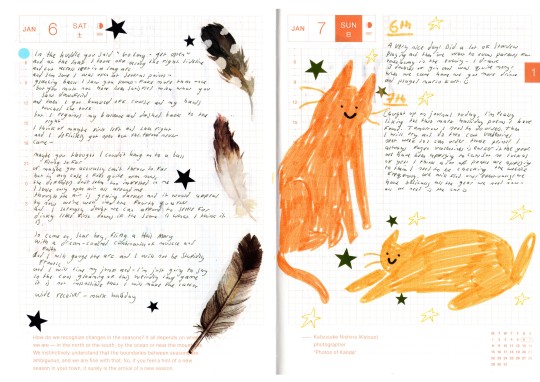

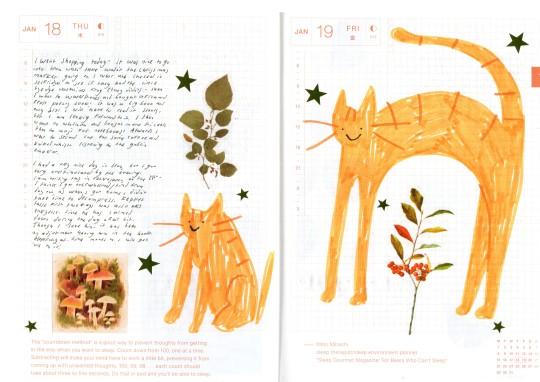
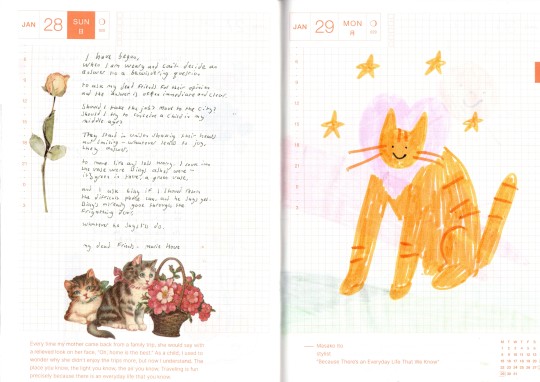
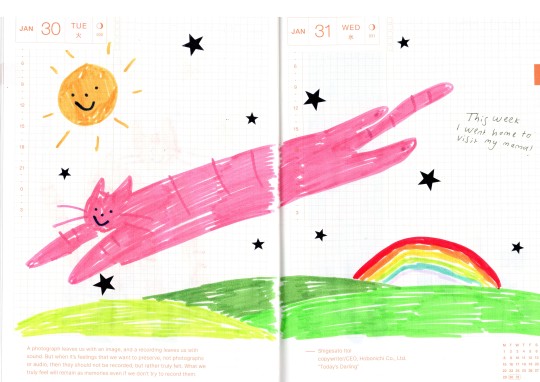
poems and cats from january!!
#journal#mine#i did a rlly nice spread for th 2nd and 3rd but alas....u hve 2 wait and see :3#idk whether to do like. cat round ups or general spreads i like roundups for feb#i will hve 2 see!!#anyway today i made and mailed orders and organised some things and ordered sm jeans and a fleece#tomorrow i will PERHAPS. bake bread. and do a drawinh#im going to redraw my parallel play drawing bc ngl ive never liked it !! i did such weird colours
3K notes
·
View notes
Text
In Knives Out Blanc wanted to do the murder mystery investigation with Marta so bad, but she was certain she was guilty so she spent a good amount of the movie avoiding/hiding stuff from him
Meanwhile in Glass Onion Helen was fucking carrying the investigation, even while accidentally getting drunk, and even went to investigation lengths Blanc was hesitant to do
#knives out#glass onion#ko: marta actively ruins evidence due to her perceived guilt. blanc knew the entire time she was innocent or ill intent#go: helen fucking diving forward to eavesdrop on duke/miles/whiskey better. helen tossing a tape recorder in birdie's bag. helen listening#in on lionel & claires freak out at the pool. helen did all the research on her sisters journals to get as into the role as possible#marta only standing up for her rightful inheritance at the end after everything vs helen down to ruin those shitheads from the start#i love these movies & the duality in the chars/victims & how it ends. marta gets the house. helen burns miles' down. its just!!!!! AHHH#i just rewatched knives out again so i can rewatch glass onion again tomorrow. im so normal about this series#tc posts#*of ill intent gdi. tumblr mobile let me edit tags
13K notes
·
View notes
Text
Grieving, grieving, constantly grieving.
I mourn what could have been, what should have been, what will not be, what I cannot save.
#writing#spilled ink#creative writing#journal#mental health#spilled words#spilled thoughts#spilled poetry#poetry#prose#poem#dissociative identity disorder#actually did#did system#ptsd#grief#loss#anger#writers on tumblr
2K notes
·
View notes
Text
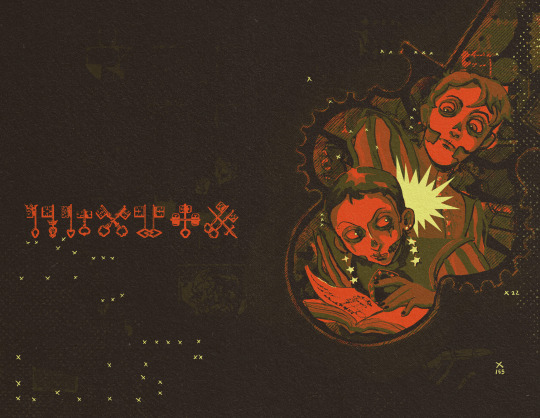
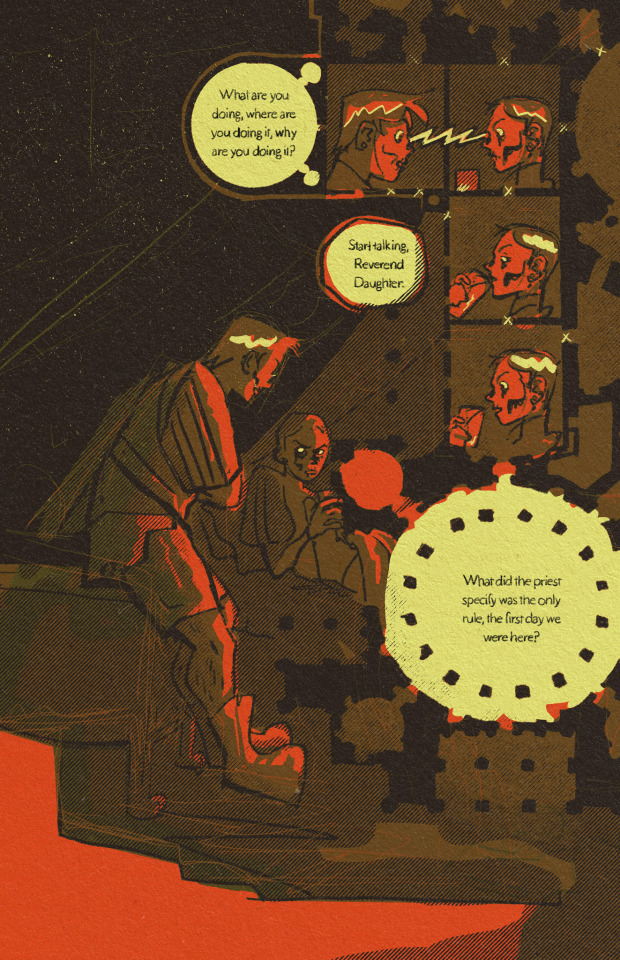
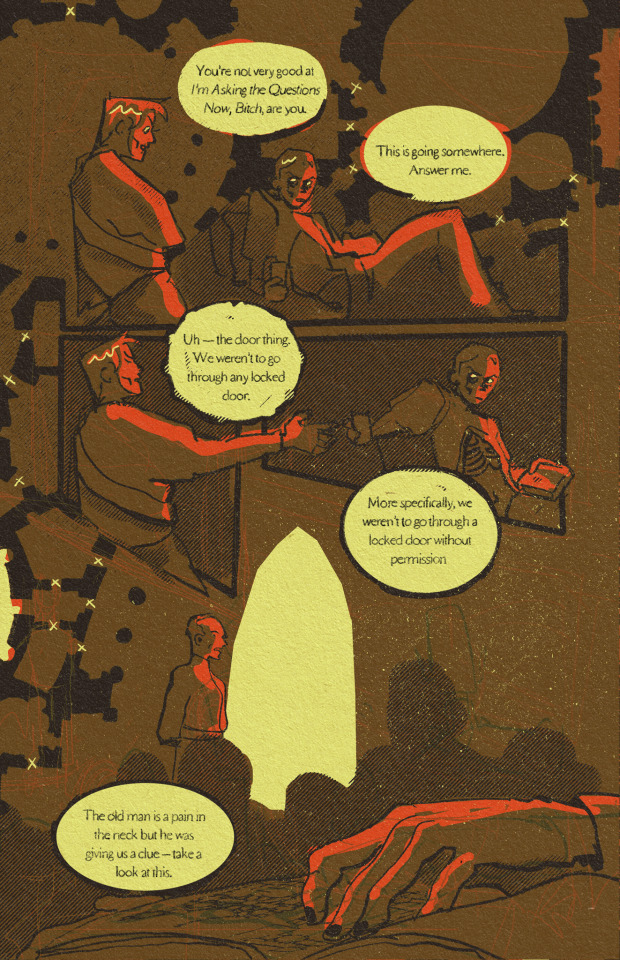

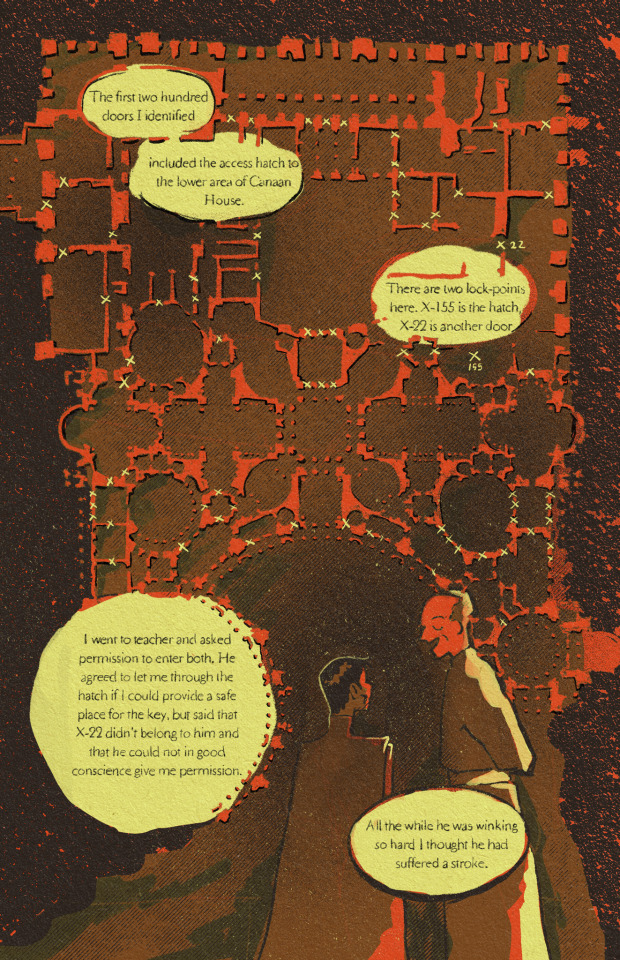
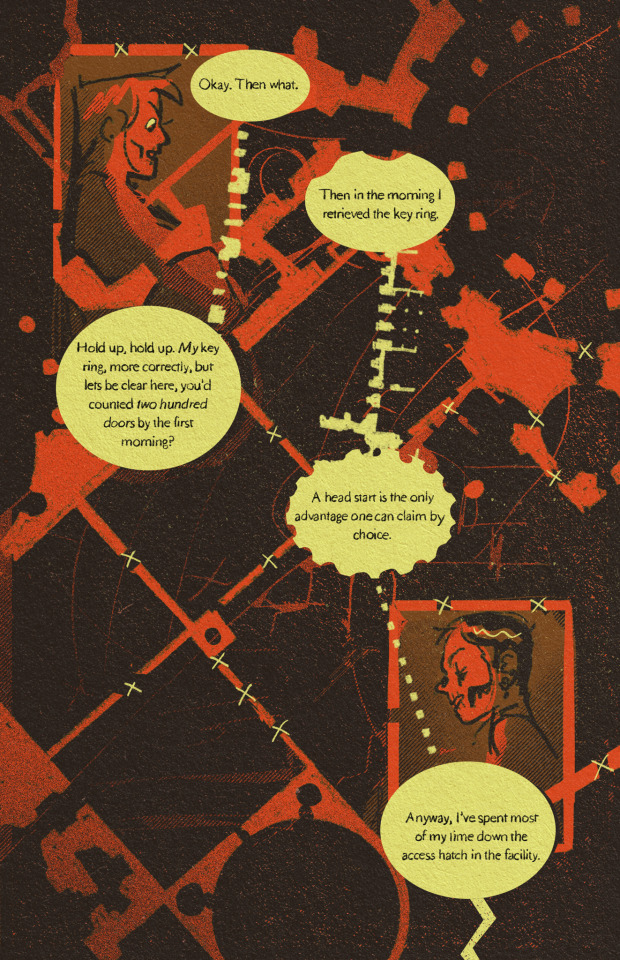

This place is a message... and part of a system of messages... pay attention to it!
#have linked 2 this song before and i will link 2 it again. because HELLO. canaan house thesis statement 2 me.#rlly obsessed w this scene i think i’m just fascinated w the idea of harrows journals…… her drawings of canaan…what else is in there#anyway this was mostly an excuse for me to play around w using architectural drawings as a sort of compositional element/framing device.#did it work? who’s to say. the most important part is that i had fun except. i didn’t even do that.#text is slightly edited for length etc…. + i cut off the scene where i did because well…. makes me insane. lol#don’t pay too much attention 2 the architectural parts they don’t make sense#because i cobbled them together from the plans of like 3 different buildings.#anyway enjoy. or don’t. i’m not ur boss.#the locked tomb#tlt#gideon the ninth#gideon nav#harrowhark nonagesimus#harrow the ninth#okay that’s it
4K notes
·
View notes
Text
I can see how it warps the mind, the perception of the world and our place in it. Power is enticing. Like Lewis Hamilton? You can eat steaks that cost the same as your electricity bill and meet him again. You, too, can bask in the balding aura of Prince Harry and the fake glow of Instagram models. Any wealth and status you lack, you can perform. What I received wasn't a crash course in Formula 1—in fact, Formula 1 only became more mystifying to me—but journalism, as viewed by the other side. The great irony of the other side is that they need journalism. The petrochemical companies, deeply powerful institutions, need journalists to write about all the things they attach themselves to that are not being a petrochemical company. Formula 1, on a rapacious tangent for growth and new markets, needs journalists to spread the good word of the richest sport in the world. Unfortunately for the other side, journalism still remains a double-edged sword.
This article by Kate Wagner, published on 1 Mar 2024, was removed from Road & Track later that same day. Link goes to archived copy.
#f1#sponsors#motorsport journalism#kate wagner#she did indeed like lewis#long read#behind the scenes#women in motorsport#wayback machine#new york magazine described this piece#as having been aggressively disappeared
942 notes
·
View notes
Text
i hate you cars i hate you driving i hate you gas stations i hate you highways i hate you paid parking garages i hate you random plots of grass that could be turned into parks but are just sitting there empty i hate you trucks
#journal#did like. a whole bikeshare thing today and it was so COOL and fun. and now i have so many walkable city thoughts#urbanism
21K notes
·
View notes
Text
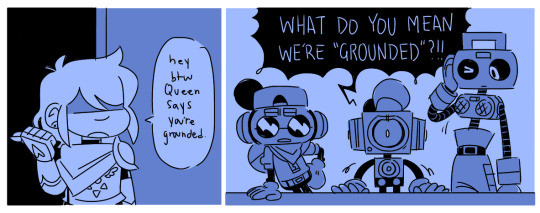
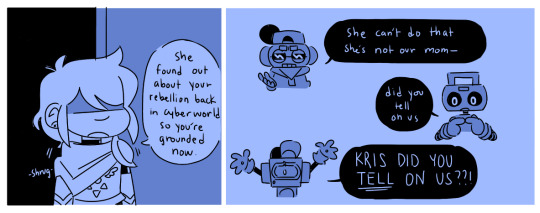

had a smidgen of a dream about chapter three and needed to illustrate it
if you ship scc please don’t interact w me 👍
#dream journal#it was like. gameplay ofc but it was kris speaking. like it wasn’t phrased as the narrator describing what kris said but they also didn’t h#didn’t have a talk sprite#sweet got a new sprite in for an angry face but only him HDNSJSNS#the art gallery#deltarune#scc#most of the rest of the dream was just walking around castle town. nothing was different#didn’t even see the conversation w queen that this bit of the dream implied#ALSO thinkin abt drawing sweet w a mole. I thought abt it a while ago & did a doodle and have been too coward to really commit to it since#someone else draws him w it too and i like it! ariannamoonlight i think? sorry if that’s wrong I’ll look later#ITS ariannamoonlitz !!
2K notes
·
View notes
Text
Love that a lot of exclusionists put how angry they are in their bios and whatnot. Like, no shit 😂 You're not an exclusionist because you are happy and content 🤣
#mental health#lol#dissociative identity disorder#did#ptsd#post traumatic stress disorder#radical inclusion#radically inclusive#pro endo#endogenic safe#endogenic friendly#tulpa safe#<3#6-7-22#did journal#Journal#plural pride#system pride#Plurality#multiplicity#Come one come all!#syscourse#Playtime
14 notes
·
View notes
Text
how to explain to someone that i don't wanna be friends anymore bc you're simply literally not the same person and don't feel a connection to who you were when you were friends uhhhhh
#this girl i used to be friends w contacted me after yrs of not speaking and like#i just don't even have the energy to explain that i didn't like her towards the end of our friendship anymore#and that im not the same person and just have no emotional space to give to mask for that lmao#DID journal#i'll prob just block her number bc like nah im dealing w too much for that
3 notes
·
View notes
Text
i have been reading through the diary I kept from ages 14-17 and realising how helpful it can be to keep a record of how you're feeling at different moments.
not only is it helpful to write down and process how your feeling and give yourself time to truly think about it, it's nice to have something to look back on. to not just remember how you felt about a certain situation but to actually have yourself from that time tell you.
and also, from an adhd perspective, it's really lovely to have reminders of things I'd almost entirely forgotten. it's easy to think that your life right now isn't interesting, but in 5 years time? to know what songs you were listening to or book you were reading or even that Thing that you were so worried about but now you can't even remember the details. it's nice to have a physical reminder that time passes and things really can get better.
#i think part of whats makes it so special to me is that (like it is for a lot of people) those ages where so *much*#and i was so stuck in my head and socially anxious and i feel like those years of school rly shaped who i am now ect#but id kind of forgotten? its become a blur emotions over time and its nice to see it clearer#but also how i changed? and to read into it and see what i did or didn't write#im also a big fan of the inner child and doing things for your younger self and its a lovely gift to have her speaking to me directly#also if you want to journal i highly recommend doing it in a normal notebook rather than a pre planned one#it gives you the freedom for it to be whatever you want with none of the pressure#recovery#tips
439 notes
·
View notes